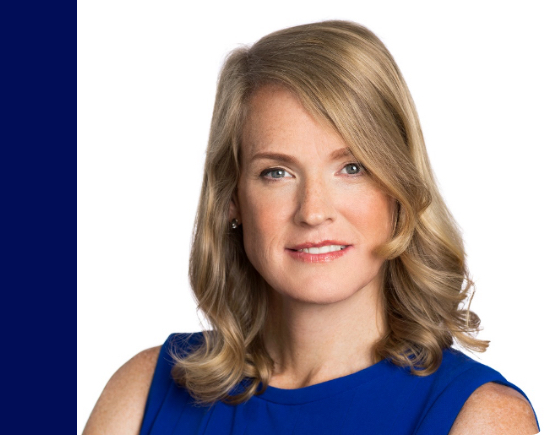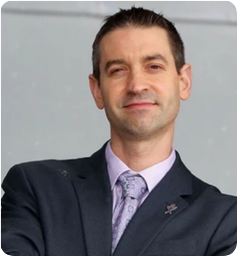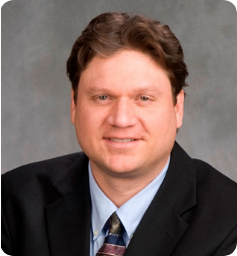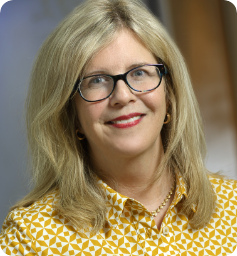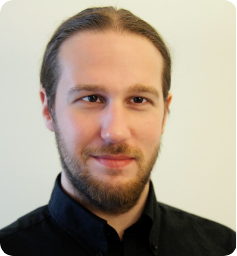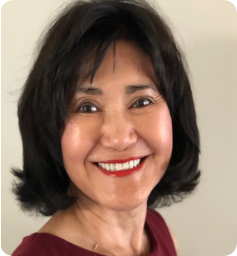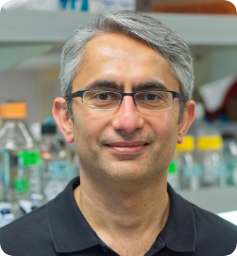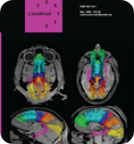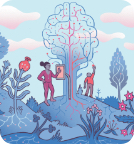Our vision
Helping you live a better life by revealing your hidden biology and using the power of AI to help take control of your mental health and protect your future.
Why we created Dionysus
We created Dionysus to help change the discussion on stress, anxiety, depression and mental illness—to help explain it, understand it, and to help everyone who suffers through hormone related moods and despair, in all facets of our lives. We know that life can be challenging, it can be hard, it can be stressful and depressing. We all need some support.
We are passionate about merging smart psychology with smart biology to maximize human potential. From revealing your epigenetic profile to mapping your mental mosaic via AI, we create bite sized feedback unique to you—to protect your family from stress, take charge of your children’s epigenetic future, be better prepared for life’s challenges and provide actionable tools to live your life, in real time.
Our founders are committed to vigorously testing and continually improving our systems.
Team
Andrea Cubitt CEO/Co-Founder
Andrea Cubitt is an experienced transgender executive who is an experienced scientist, entrepreneur, and successful biotech professional.
After completing a post doctoral fellowship at Cornell Medical Center, Dr. Cubitt started her professional career at the Howard Hughes Medical Institute at the University of California, San Diego where her work formed part of the research recognized by Nobel Prize for Chemistry awarded to Roger Tsien in 2008. She left Academia in 1996 to commercialize this technology at Aurora Biosciences Corporation. Over the following years she worked at a variety of biotechnology companies with increasing roles and responsibilities at the interface of developing and commercializing new technology. In 2005, she co-founded AnaptysBio, Inc, where she was instrumental in the development of the initial business plan and intellectual property strategies.
Andrea’s transition experiences as an executive were instrumental in developing the vision for Dionysus. A company focused on better understanding our gendered personalities, the impact of stress, and the mood swings in everyday life that she experienced taking estrogen. She is also active as a board member for the ACLU, and is a commissioner for the AMA Foundation charged with reducing healthcare disparities for the LGBTQ+ community.
Vivienne Ming Chief Scientist/Co-Founder
Vivienne Ming, is a theoretical neuroscientist, technologist, entrepreneur, and author. She co-founded Socos Labs, where machine learning and cognitive neuroscience combine to maximize human life outcomes.
Dr. Vivienne Ming explores how to maximize human capacity as a theoretical neuroscientist, serial entrepreneur, demented author, and mother of two. For a decade, she has explored seemingly intractable problems—from a lone child’s disability to global economic inclusion—through her philanthropic work at Socos Labs. She has designed AI systems to predict manic episodes in bipolar sufferers, reunite orphan refugees with extended family members, and even help treat her son’s diabetes. Vivienne’s previous companies have applied machine learning to bias in hiring and education at home and in school, as well as using neurotechnologies to treat Alzheimer’s and depression. She started her professional life at UC Berkeley’s Redwood Center for Theoretical Neuroscience pursuing her research in cognitive neuroprosthetics. Vivienne sits on the boards of numerous companies and nonprofits. For relaxation, she writes science fiction and spends time with her wife and children. Named one of “10 Women to Watch in Tech” by Inc. Magazine and one of BBC’s 100 Women in 2017, Vivienne is featured frequently for her research and inventions in The Financial Times, The Atlantic, Quartz Magazine, and the New York Times.
Zachary Kaminsky has spent his career applying molecular epigenetic, statistical, and machine learning approaches towards understanding and predicting mental illness and mood. He has applied these technologies to help us not only understand the wiring of our DNA and how it makes us who we are, but the factors external to us like our environment and predicting when they’re going to make us feel better or worse.
With a psychiatrist as a father, Dr. Kaminsky grew up in a household focused on helping those with mental illness. After studying neuroscience in University, he spent a year in teaching in Asia, where he was given a taste of what it means to live as a minority. There he experienced what it means to have less power in society, facing road blocks on occasions trying to help children in need. These setbacks stoked a desire to use his skills towards the betterment of individual lives and as he progressed through his career as a scientist in North America. At his time at Johns Hopkins department of Psychiatry, he established a laboratory that identified some of the first epigenetic biomarkers in mental illness, which could predict future risk to disease. After moving back to Canada where he holds the DIFD Mach-Gaensslen Chair in Suicide Prevention Research, he complemented his biological pursuits by applying artificial intelligence to social media with a hope of understanding the environmental consequences of our everyday interactions on our mental health. Dr. Kaminsky remains committed to translating his research into novel tools and platforms that will move from the laboratory out into the real world where they will help those in need. Through Dionysus, he hopes to apply his work towards bettering the mental health and wellness of everyday individuals, saving the lives of suicidal individuals, and serving the needs of underserved communities with the highest mental health needs.
David Schmitt is Director of the Centre for Culture and Evolution within Brunel University London’s College of Health, Medicine, and Life Sciences. Professor Schmitt is Founding Director of the International Sexuality Description Project, an interdisciplinary collaboration involving 100s of psychologists, biologists, and anthropologists from around the world who seek to understand how gender, culture, and personality combine to influence mental health and well-being.
Professor David Schmitt has authored or co-authored more than 100 articles on human sexual diversity, his work having been cited over 18,000 times. His academic honors include receiving the Samuel Rothberg Professional Excellence Award in 2006, the Caterpillar Research Excellence Award in 2008, and in a 2013 systematic review of scholarly publications in the 2000s (published in Review of General Psychology), he was distinguished as the most frequently cited scholar within the field of cross-cultural psychology. In 2016, he was awarded the Ira and Harriet Reiss Theory Award from the Foundation for the Scientific Study of Sexuality for making important theoretical advances in sexology with his work, “The Evolution of Culturally-Variable Sex Differences.” He has served on the Editorial Boards of Archives of Sexual Behavior, Evolutionary Behavioral Sciences, Evolutionary Psychological Science, Evolutionary Psychology, Interpersona, and Sexualities, Evolution & Gender: An International Journal of Feminist and Evolutionary Standpoints. Professor Schmitt currently serves as Editor-in-Chief of the new journal, Culture and Evolution, and he was recently elected president of the Human Behavior and Evolution Society
Board of Directors
Amol Sarva Chairman
Amol Sarva co-founded several startups including Virgin Mobile USA, Peek, Halo Neuroscience, Knotable, Knotel, and built a building in New York called East of East. He studied cognitive science for his Ph.D. at Stanford with undergraduate degree from Columbia. He teaches at Columbia. He is a backer, advisor, and mentor at 50+ companies.
Dr. Amol Sarva is an American technology entrepreneur who co-founded Knotel, Halo Neuroscience, Knotable, Peek and Virgin Mobile. He is cofounder of Knotel, which provides headquarters as a service to real companies, with ~30 locations around NYC and SF. Knotel serves larger teams that still want the flexibility and service of shared office. Knotel is backed by numerous leading venture firms. He helped develop a neurostimulation technology that boosts brain function, through the company Halo Neuroscience, with his cofounders. Halo is backed by Lux Capital, Jazz Venture Partners, Andreessen Horowitz, and others.
Amol founded Knotable, an app for teamwork without the noise — a platform for shared notepads that pull people and content together onto the same page. His co-founder is Edward Shenderovich of Kite Ventures. Knotable is backed by Bloomberg Beta and 500 Startups. He’s on the board of Plethora, a modern factory for getting metal parts faster. He’s an advisor to Fon, the world’s largest wifi network. He advises Payfone (mobile payments), Work Market (platform for labor resources), and Ouya (open source game console). Plethora is backed by Founders Fund and Lux Capital. Amol joined the faculty at Columbia University in 2016, teaching Venturing to Change the World to the College undergrads. Amol’s a mentor to several Techstars accelerators, NYC Seed, Jazz Human Performance Venture Partners, and Columbia University startup programs.
Scientific Advisory Board
Jennifer Payneis the Vice Chair of Research in the Psychiatry Department at the University of Virginia.
Dr. Payne received her B.S. in biology at Davidson College in Davidson, NC and her M.D. from Washington University Medical School in St. Louis, MO. She completed her residency in psychiatry at the Johns Hopkins Hospital and then completed a fellowship in mood disorders through the Mood and Anxiety Disorders Program at the NIMH. Dr. Payne joined the Johns Hopkins faculty in 2003 and was promoted to Associate Professor in 2011. During her time at Johns Hopkins Dr. Payne founded and directed the Women’s Mood Disorders Center which, in addition to providing outstanding clinical care for women with mood disorders, served as a research center conducting research into the genetic, biological, and environmental factors involved in postpartum depression. Most recently, Dr. Payne has moved to the University of Virginia where she is serving as the Vice Chair of Research in the Psychiatry Department with a goal of expanding both her own and the department’s research programs. There, she has established the Reproductive Psychiatry Research Program which studies psychiatric disorders triggered by times of hormonal change. Her work has identified two epigenetic biomarkers of postpartum depression and she is actively working on identifying the underlying biological basis of postpartum depression.
Benjamin Clemens has focused his research career on unravelling the neurobiological mechanisms of gender identity and mental illness, providing causal and predictive insights into human brain function and organization. His recent work focuses on digital health solutions to remotely assess and predict emotional state and psychological wellness.
Dr. Clemens works as a post-doctoral research associate in the Department of Psychiatry, Psychotherapy and Psychosomatics at RWTH Aachen University. His research focuses on the combination of non-invasive brain stimulation and neuroimaging techniques, together with the concurrent measurement of psychological outcome variables, to infer causality in brain-behavior relationships. In his influential studies on gender identity, he revealed distinguishable brain-behavior phenotypes for gender identity, advocating a more dimensional gender perspective and a biologically grounded reconceptualization of gender dimorphism. His line of research will help to pave the way towards objective, data-driven diagnostic markers for gender identity and psychological gender, taking into account neurobiological and behavioral differences in an integrative modeling approach. Another goal of his research is the development and clinical application of digital precision medicine approaches to remotely assess affective and emotional states. He strives to improve diagnostic accuracy and enable prediction of treatment outcome in psychiatric patients with the help of deep multi-modal phenotyping (clinical factors, neuropsychological testing, physiological parameters). Through Dionysus, he hopes to apply his work towards improving mental health and psychological wellness for everyone, and specifically individuals struggling with their gender identity.
Diana Wong is a prominent people leader who is passionate about business evolution and transformation. She loves building deep engagement with business leaders and being part of teams establishing forward-thinking strategic plans. Her focus is working through the complexity of change which includes a holistic roadmap of cultural, people, process and technology that creates an opportunity for people to be adaptive. Her commitment is to bring clarity and integrity to the “people and culture” focus of transformation.
Most recently, she served as Senior Vice President, Human Resources for The Capital Group Companies, an asset management company committed to helping people pursue their life goals. Prior to that, she held numerous global, senior people development roles with Microsoft and other technology companies in the Seattle area including Primus Software, Data Dimensions and AT&T Wireless/McCaw Cellular. Her career has spanned multiple industries but she is most enthusiastic about science and technology. A common theme throughout has been organizations with a strong set of core values and high integrity culture. Diana has served on the Board of Directors for a number of non-profits in Washington as well as California. These include Families Forward, Campfire Boys and Girls, Family Services, University of Washington Women’s Center and Women+ Business. As the daughter of immigrant parents Diana grew up in a bi-cultural environment and truly understands the challenges of being different. Her way to make a difference has been through a long term commitment to social causes related to diversity, children and education. Diana received her M.B.A. from the Foster School of Business at the University of Washington and her undergraduate from California State University.
Nirao Shah is focused on understanding fundamental neurobiological mechanisms that underlie gender. His molecular genetic approaches in model organisms have identified genes and neuronal populations in the brain that regulate gendered behaviors. He is interested in understanding how the gendered brain shapes our moods, emotions, and behaviors.
PR and thought leadership
CONNECT AND THRIVE
Join the community
Do you have questions? Want to know more. Please contact us today.
© 2021 Dionysus Digital Health. All rights reserved.


